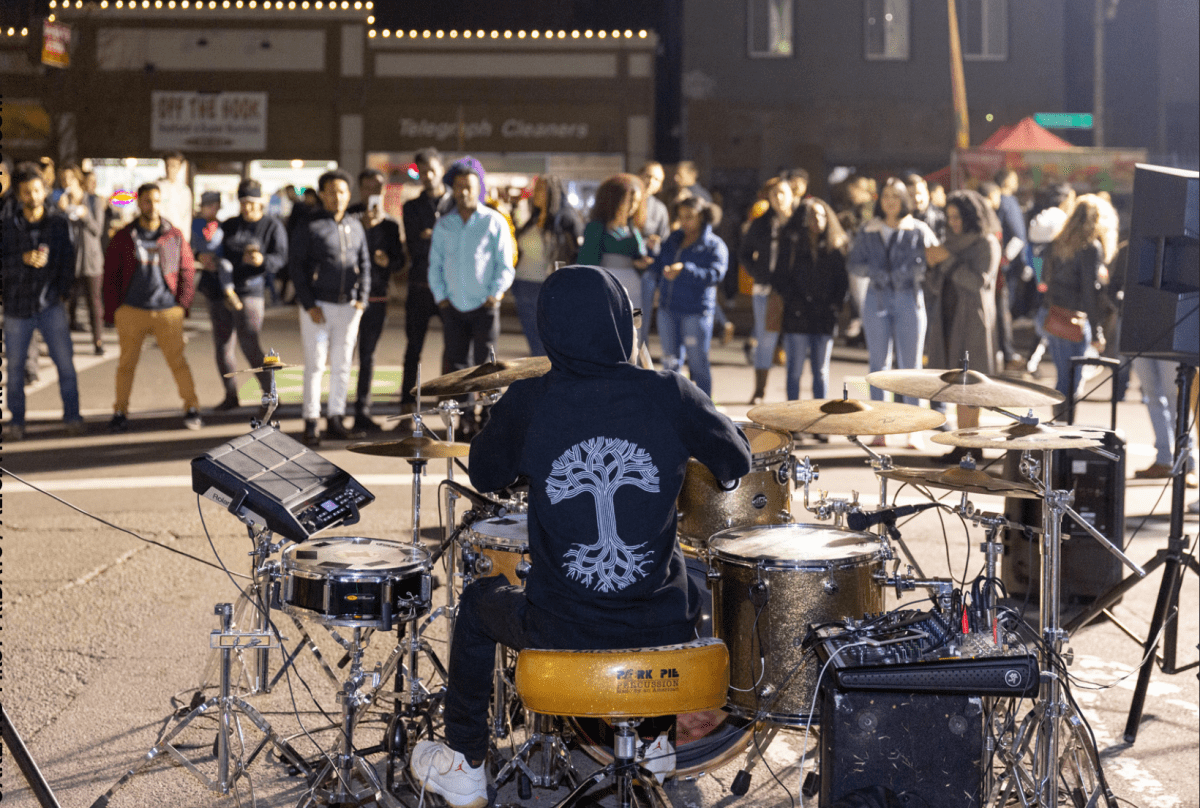Oakland First Fridays, one of the city’s most prominent outdoor festivals, will be taking a break beginning in January. Festival organizers say they hope to resume the event in April.
The monthly festival routinely attracted crowds of 30,000 to 50,000 people prior to the pandemic, with over 100 vendors and a waitlist of other merchants, artists, and food sellers eager to participate.
But since reopening in September 2021, the event has faced challenges. Oakland First Fridays Director Greg Harris said an increase in street-closure fees charged by the city, lower attendance, fewer vendors, unpredictable weather, and the lack of a major corporate sponsor have all contributed to First Fridays’ financial problems.
Harris said that the city of Oakland agreed to pay for fire, police, and permitting costs starting in September and through June 2024. This included a monthly $12,000 fire permit and fire inspections for every vendor and Oakland police officers on site.
“We’re not sure if the city will be able to extend paying for these fees,” he said of the uncertainty past June.
Oakland first fridays
- To participate as a vendor or sponsor, apply here.
- To volunteer, sign up here.
- Donate via PayPal or CashApp ($OaklandFirstFridays)
Shari Godinez, executive director of the KONO Community Benefit District, the nonprofit merchant’s association that puts together the festival, told the Oaklandside in 2021 that before the pandemic, the city underwrote the costs of police and fire services, special events permits, and sound permits.
Harris said the protected bicycle lanes on Telegraph Avenue that were installed a few years ago have also affected the number of vendors who can participate. The number dropped from 100 to around 75. Vendors who need larger spaces on the street have trouble fitting their booths between the bollards and other bike lane infrastructure. The larger booths pay more to participate in the fair, and without them, the festival doesn’t get those funds.
Harris said that the pandemic also forced many small vendors to call it quits.
“In 2019, we had a waiting list of around 40 vendors,” he said. “Now, we don’t have a waiting list at all.”
Other vendors, he said, struggle to come up with the funds to pay for their booth ahead of time, causing the organizers not to be able to access those funds until the next month.
He said attendance has also changed since the festival came back after its pandemic-related hiatus. At first, it was back to pre-pandemic levels, but in 2022, the number of attendees significantly dropped.
“We recently did a quick headcount, and we’re back to around 15,000,” he said.
Unpredictable weather has significantly deterred people from attending the festival, Harris added. Last month, he said, was the first warm Friday of the year.
Despite the conversations surrounding crime, Harris said that the festival has heard from participants about how much safer they feel when it’s taking place.
Harris said that while the festival takes a break, the organizers still plan on giving back to the community during the holiday. In November, they will hold a coat and toy drive. Santa Claus will give out the toys collected during the December edition of First Fridays.
He hopes that a corporate sponsor from the neighborhood sees how vital First Fridays is for the community and the brick-and-mortar businesses in the area and comes forward wanting to sponsor it in 2024.
“We still want to bring joy to the community and have some fun and not try to think about what is about to take place,” he said. “But it has been on our hearts heavily. We’re trying to ensure we have enough to survive and possibly not close it for good.”

